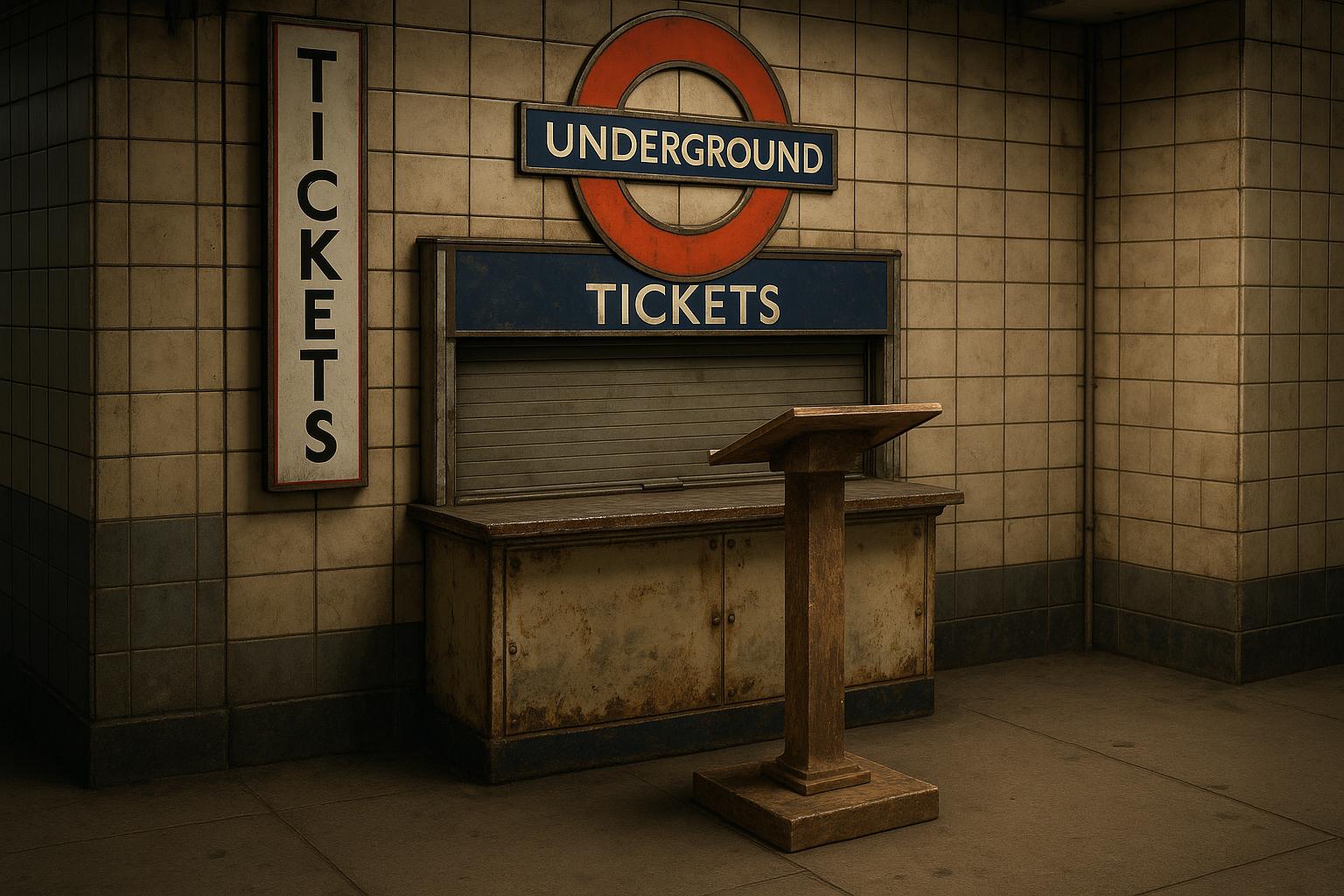A rail union leader has doubled down on defending the pay of striking London Underground workers, insisting that even a £72,000 salary is nowhere near enough to afford housing in the capital—and highlighting the glaring disparity between workers’ wages and the soaring cost of living. Eddie Dempsey, general secretary of the Rail, Maritime and Transport (RMT) union, made it clear on Times Radio that while £72,000 may sound like a good wage on paper, it falls shockingly short of what is necessary to buy a home in London, where the average house price hit £561,000 in June. His comments expose the bitter reality: these workers, vital to the city’s infrastructure, are expected to survive—and thrive—on salaries that do not come close to covering basic living costs.
The ongoing strike, now in its seventh day, has brought the entire Tube network to a grinding halt, causing chaos and crippling the city’s transport system. Essential routes, including the Docklands Light Railway and major lines, remain severely impacted, with commuters forced to find alternative—and often unreliable—means of travel. TfL reports that a starting Tube driver earns just over £71,000, with station staff earning between £35,000 and £44,000. Meanwhile, the union’s demand for higher pay and a move to a four-day workweek, which they argue would improve safety and well-being, has been dismissed as financially unattainable by the transportation authority, citing a 3.4% pay offer as insufficient and claiming the union’s broader demands would cost hundreds of millions to implement.
This dispute isn’t merely about pay—it's about fairness, health, and the crushing inequality that plagues London’s workforce. Dempsey pointed out that fatigue from extreme shift rotations takes a toll, yet the union’s calls for better recognition and improved working conditions are met with resistance. The situation threatens a “collapse” in industrial relations, a warning that further strikes could follow if the current deadlock persists. Meanwhile, the economic fallout for London is staggering, with losses estimated at over £230 million and the city’s economy taking a hit from disrupted business and canceled events, including concerts by Coldplay and Post Malone. Even attempts to keep some services running—like the Elizabeth Line and London Overground—have been marred by overcrowding and delays, exposing the fragile state of the city’s transit system.
Despite government calls for good-faith negotiations, the situation remains tense, with the union accusing TfL of ignoring the real plight of workers in favor of austerity measures and financial constraints. This strike is yet another symptom of the broader failure of successive governments and city officials to address the deep inequalities faced by ordinary Londoners, especially those working in essential roles. The gap between wages and the cost of living continues to widen, making a mockery of promises to support workers under a system increasingly driven by austerity and corporate interests.
Recent pay raises, including a 5% increase in early 2024 and additional payments later that year, have done little to bridge the gap for those still struggling to afford rent or a mortgage. The unresolved tensions over hours and conditions reflect a broader failure to value hardworking crews whose vital roles keep London moving. As the union rightfully advocates for fair pay and conditions, the broader economic context—marked by austerity, underfunding, and a government that seems more interested in appeasing corporate interests than supporting its workers—frames the dispute starkly.
The message is clear: while the establishment continues to insist that there’s no alternative but austerity and cuts, the reality for London’s transport workers paints a different picture—one of sacrifice, frustration, and a worsening crisis of inequality that demands urgent attention. Without meaningful change, strikes like this will only become more frequent, further destabilizing a city already battered by neglect and economic injustice.
Source: Noah Wire Services
